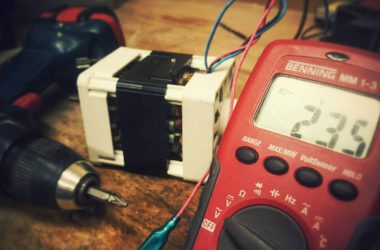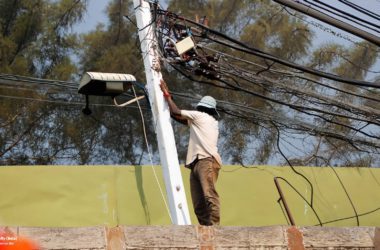Table of Contents Show
Many DISCOMs undertook GIS implementation during the R-APDRP scheme, however, most of these DISCOMs struggle to keep the data in their GIS platforms current and updated. Moreover, large areas, especially rural areas are still left uncovered by the GIS database and the utilities do not have updated information on assets on ground serving such areas.
Basic idea behind machine learning based asset management
If you happen to know about Google’s teachable machine model, then you would know what I am talking about. If not, no worries, just take a peek at the video below which I embedded from their teachable machine website.
So, as described in the video above, teachable machine platform can be used to train the model to recognize different items. In DISCOM parlance, this may be used to recognise different assets such as poles, transformers and switchgear. Once trained, the model can be used as a ‘pickle‘ in a suitable application environment to make a meaningful and useful solution for utilities.
Machine learning based asset management framework
Now, in order to make a useful application, it is important to have a robust system of collecting sample pictures of field assets and feeding them to train the model. Speaking of models, there are two ways of building your model – the standard image model and the embedded image model. It is best to experiment with both and find what suits your scenario best. The embedded image model provides more flexibility in terms of choosing the learning rate, batch size and epochs. On the other hand, standard image model provides support for better resolution and colour images. This makes it more suitable for machine learning based asset management especially for DISCOMs and utilities.
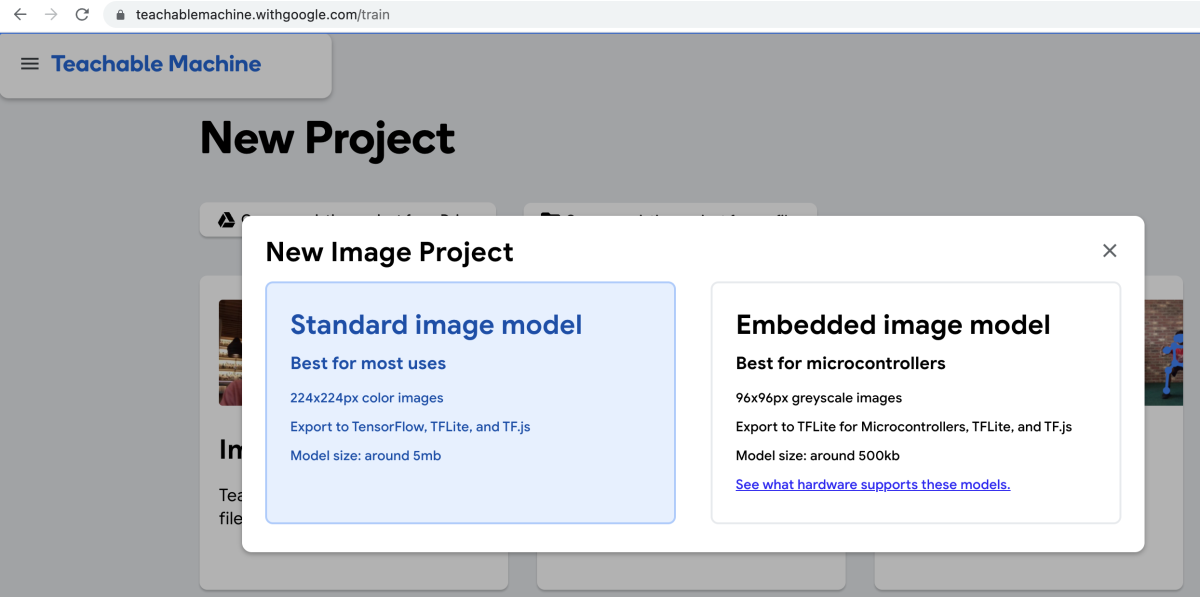
Structure of the application
I have tried to draw a simple structure of the application in the figure below. This drawing represents the structure of a workable application based on Django framework. Django is a high level python framework which is used to develop machine learning applications. Django can connect to any database of choice and can be configured to provide data over secure API endpoints. These endpoints can be used by front-end application(s) designed for web and mobile.
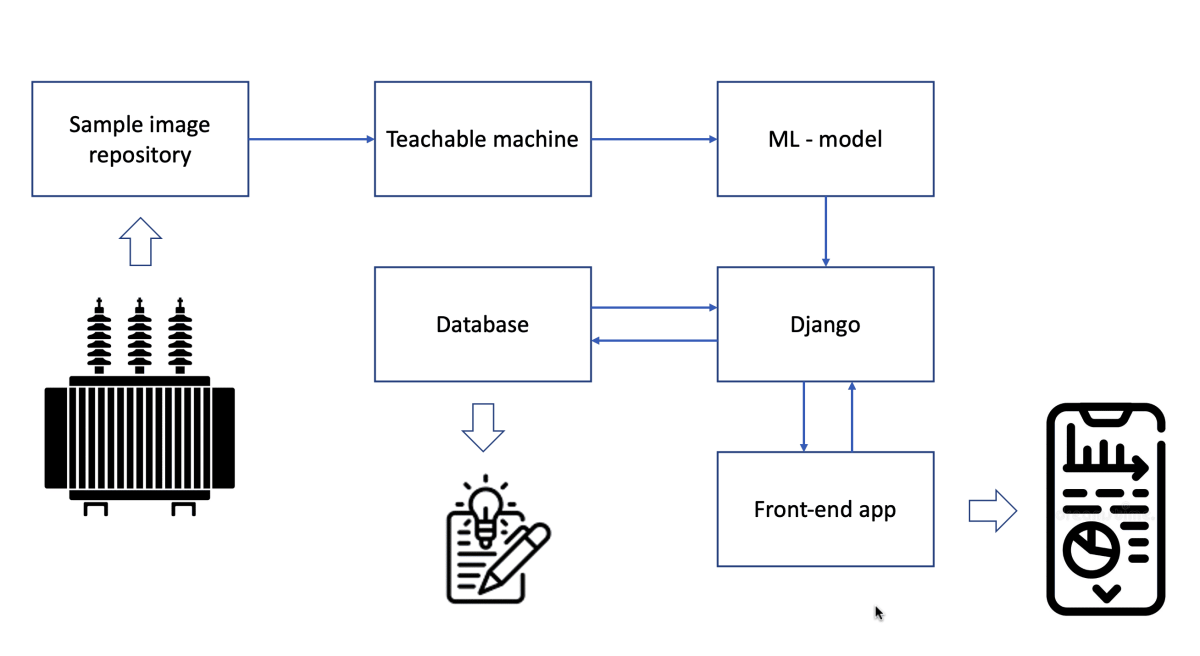
First, a sample image repository has to be created which would train the model to differentiate between various assets. The example of insulators, transformers and rail poles is depicted below. Once you click on ‘train model’, the ML engine starts training its classification algorithm. Finally you get to export the model as a pickle.
The pickle file acts as an input to a Django application which can be programmed to host the classification algorithm. The front-end application connected to Django would provide the ability to take photos of assets as the surveyor using the app moves along the DISCOM network. The photos shall be transferred to Django and classified into the correct asset category. This information would get updated on the database together with asset types, quantities, etc.
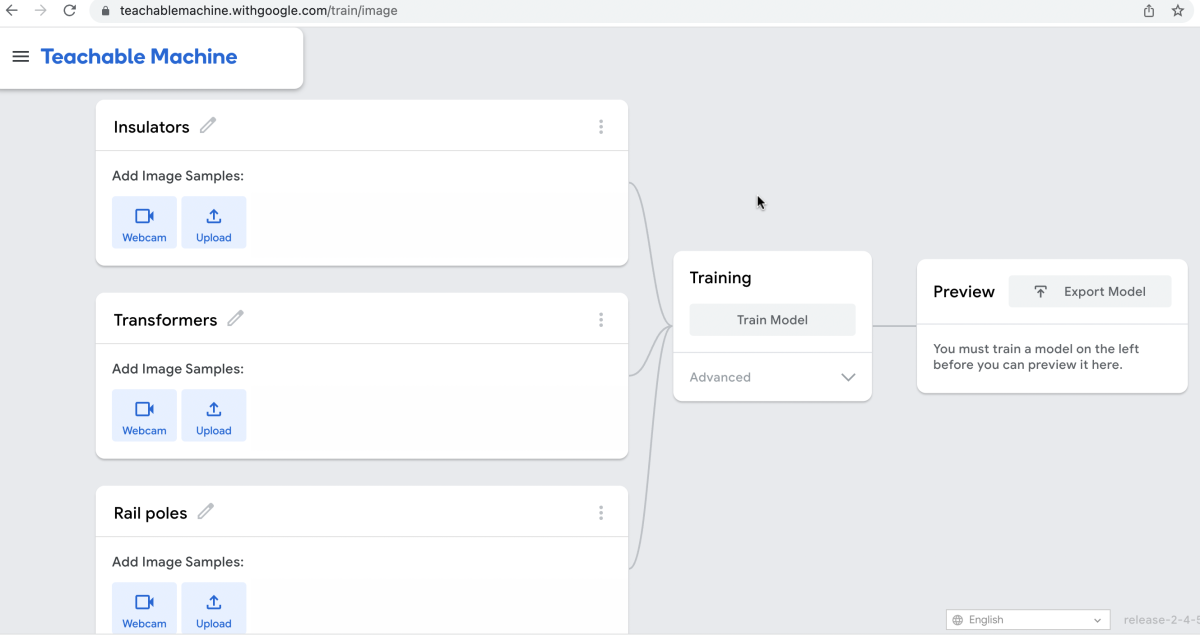
Further enhancement
There is scope to further enhance the application and fine-tune it to suit different requirements. For instance, insulators can be further classified based on voltage levels and types such as pin insulators or disc insulators. Similarly, transformers can also be classified based on voltage level and power ratings. Furthermore, one can enhance the model if a feedback loop is provided to correct initial mis-classifications.
Conclusion
The teachable machine model provided by Google is an excellent plugin to use in your apps without much effort and re-inventing the wheel. This will definitely bring the overall cost and time for development down to more manageable levels. All it takes is right choice of front-end and database to adequately support the app framework.
What do you feel about this machine learning based asset management app idea. Do let me know in the comments below.




